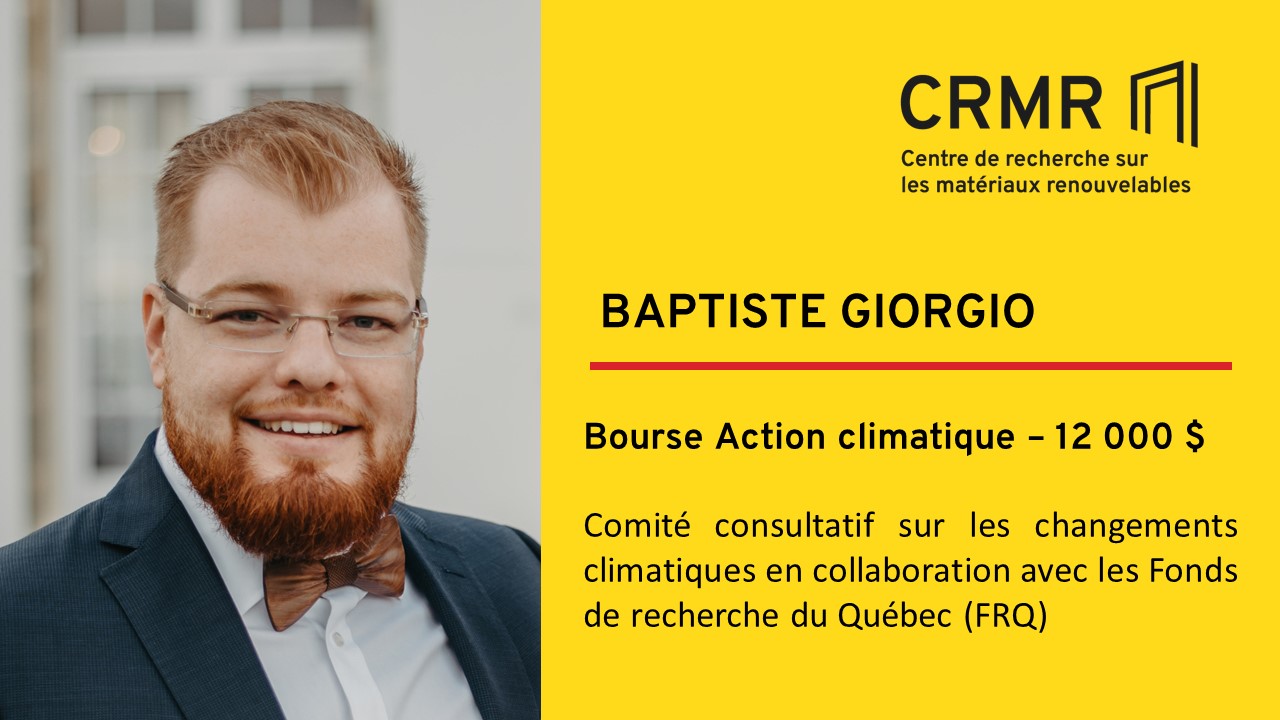Congratulations to Baptiste Giorgio, recipient of the Climate Action Scholarship!
We are delighted to announce that Baptiste Giorgio has been awarded the « Climate Action 2023 – 2024 Scholarship », valued at $12,000. This scholarship, awarded by the Advisory Committee on Climate Change in collaboration with the Quebec Research Fund (FRQ), is a well-deserved recognition of his academic excellence and the importance of his work in the fight against climate change in Quebec!
Baptiste Giorgio is currently a doctoral student in wood and bio-based materials engineering at Laval University, and a member of the Renewable Materials Research Centre (CRMR). He works under the supervision of Pierre Blanchet, Full Professor in the Faculty of Forestry, Geography and Geomatics and CRMR member, and the co-supervision of Aline Barlet, Senior Lecturer at ENSAP UBordeaux.
His research focuses on « Occupant health and social perception of industrialized and wood constructions ». This work is likely to have a significant scientific and societal impact, and will contribute to the development of scientific advisory skills through the elaboration of recommendations to support the work of the Advisory Committee on Climate Change.
Congratulations, Baptiste, on this remarkable achievement, and good luck with your research!

For the second year running, the Advisory Committee on Climate Change and the the Quebec Research Fund (FRQ) are running the Climate Action Grants program. This program aims to support the development and implementation of public policies to combat climate change in Quebec. It is specifically aimed at post-graduate students, to encourage them to make an active contribution to climate action.
Projects selected for this scholarship program will be expected to contribute new scientific knowledge to support the Committee’s advisory work. They will cover a wide range of topics, from technological and social dimensions to public health and artistic approaches. This knowledge will be used to inform public policy and can have a significant impact on society.
The program is open to all doctoral students registered at a Quebec university. Recipients will be asked to carry out a research project lasting four to six months, with the possibility of their work being published on the Committee’s website.

